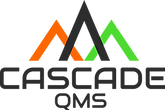Drug and Alcohol Training
What is Drug and Alcohol Training? Drug and alcohol training is a structured educational program designed to equip employees and supervisors with the knowledge and skills necessary to recognize, address, and prevent substance abuse in the workplace. This training covers topics such as the effects of drugs and alcohol on the body and mind, organization-specific policies and procedures regarding substance use, recognizing signs of impairment, safety implications of substance abuse, legal and ethical considerations, and available support resources. Drug and alcohol training is crucial for safety and compliance as it helps to mitigate the risks associated with impaired behavior, reduce accidents and injuries, ensure compliance with relevant regulations (such as those set by the Department of Transportation in safety-sensitive industries), maintain productivity, and foster a culture of safety and well-being within the workplace. By educating employees and supervisors about the dangers of substance abuse and providing them with the tools to address it effectively, drug and alcohol training plays a vital role in creating a safer and healthier work environment.
DOT 60/60 Supervisor Drug & Alcohol (Reasonable Suspicion) Training
The Department of Transportation (DOT) enforces drug and alcohol testing in all “safety-sensitive” transportation employees. Under Federal Motor Carrier Safety Administration (FMCSA) regulations, this includes certain CDL-holding employees.
This course goes beyond the basic facts to provide supervisors with effective tools for recognizing and handling violations by drivers.
Recommended for: Supervisors of safety-sensitive employees, human resources personnel, compliance officers, safety and operations managers
Drug and Alcohol Abuse in the Workplace Training
This course focuses on the management of alcohol use or drug abuse in the workplace. We’ll discuss how to identify signs of drug or alcohol abuse and explain the financial and human costs of substance abuse.
You’ll learn how to devise an effective drug and alcohol policy, carry out drug and alcohol testing, and organize employee assistance programs for those with a substance abuse problem.
NOTE: This course is NOT specific to the policies of any government agency.
Recommended for: All employees, general laborers, new hires, management, supervisors
Trusted Quality.
Cascade QMS has affiliated with the most trusted provider of online safety training, 360 Training™. For years, Cascade QMS has entrusted 360 Training™’s OSHA Campus™ to assist our cherished clients. We’re happy to have formalized a relationship that extends a discount to all of our Cascade QMS family. Simply follow the links on our website and enroll!
Have questions about which course is right for you and your team? Give us a call! Our consultants are on standby to evaluate your unique business and safety needs.
Drug and Alcohol Training FAQs
Q: Why do I need to provide Drug & Alcohol Training to employees and supervisors?
A: Providing drug and alcohol training to employees and supervisors is essential for several reasons. Firstly, it helps to ensure workplace safety by educating individuals about the risks associated with substance abuse and impairment, reducing the likelihood of accidents, injuries, and fatalities. Additionally, drug and alcohol training aids in compliance with regulatory requirements set forth by government agencies like the Department of Transportation (DOT) and industry standards, mitigating legal risks and potential liabilities. Furthermore, such training promotes a healthy work environment, supporting employee well-being and productivity. By equipping employees and supervisors with the knowledge and tools to recognize, address, and prevent substance abuse, organizations can foster a culture of safety, responsibility, and accountability, ultimately benefiting both the workforce and the company as a whole.
Q: How often should I provide Drug and Alcohol training to my employees?
A: The frequency of drug and alcohol training for employees can vary depending on factors such as industry regulations, company policies, and changes in best practices. However, in safety-sensitive industries regulated by agencies like the Department of Transportation (DOT), drug and alcohol training is typically required at least once every three years for employees in safety-sensitive positions. Additionally, refresher training may be necessary if there are significant policy changes, new regulations, or emerging trends in substance abuse prevention. Employers may also consider providing regular ongoing education and awareness programs to reinforce key concepts and promote a culture of safety and accountability. Ultimately, it’s essential to review and update training protocols regularly to ensure that employees remain informed and compliant with relevant guidelines and regulations.
Q: Who is required to be trained on Drug and Alcohol best practices?
A: Those required to undergo training on drug and alcohol best practices typically include employees in safety-sensitive positions such as drivers and healthcare professionals, supervisors and managers responsible for enforcing policies and ensuring safety, human resources personnel managing hiring and compliance, safety officers overseeing regulatory adherence, and contractors/subcontractors working within safety-sensitive industries or specific projects. This training ensures that individuals understand the risks associated with substance abuse, can recognize signs of impairment, enforce policies effectively, and maintain a safe and compliant work environment, ultimately contributing to overall workplace safety, productivity, and regulatory compliance.
Q: How long does D&A Training take?
A: Training times may vary depending on the type of training you’re providing. The training outlined on this page takes 2 hours to complete. Written safety plans and acknowledgements may take less time, however, they aren’t typically as thorough or demonstrate proper understanding as a quiz or test session.
Q: Who requires proof of employee Drug and Alcohol Training?
Proof of employee drug and alcohol training may be required by government agencies such as the Department of Transportation (DOT) for individuals in safety-sensitive positions within transportation industries, by industry standards in sectors like healthcare and manufacturing, by employers enforcing internal policies, or by contractual agreements with clients. These requirements aim to ensure compliance with regulations, promote workplace safety, mitigate risks associated with impairment, and uphold industry standards, ultimately contributing to a safer and more productive work environment.
Q: What contractor and supplier verificaton systems require D&A Testing?
A: There are many different systems used by large corporations that require proof of D&A Testing or have some sort of Drug and Alcohol component. The most popular systems in place are Veriforce®, TPS Alerts®, Verisource®, and NCMS®.
Q: Who requires proof of DOT 60/60 Supervisor Drug & Alcohol (Reasonable Suspicion) Training?
Not only is it important to accurately maintain current training records, large corporations (hiring clients) such as Devon Energy®, Enterprise Products Partners LP®, ExxonMobil Refining and Chemicals®, Enterprise Oil®, Energy Transfer® and many other companies that vet their suppliers and contractors through Veriforce® and Verisource®.


